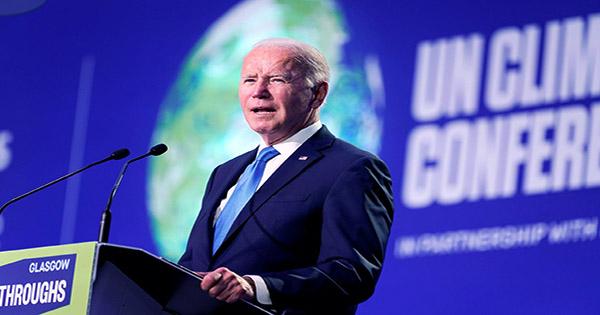In a major new commitment made at COP26, world leaders have committed to ending the period of deforestation and land degradation by 2030. At today’s COP26 Forests & Land Use session, more than 100 leaders are ready to commit to halting and reversing deforestation and land degradation by 2030.
Canada, the United States, Australia, Russia, China, Brazil, Colombia, Peru, Indonesia, Papua New Guinea, and the Democratic Republic of the Congo are among countries that have agreed to the pledges. Over 85 percent of the world’s forests are represented by the countries willing to sign the commitment, with a total area of over 33 million square kilometers (13 million square miles) of forest.
A new Forests, Agriculture, and Commodity Trade (FACT) Statement will be signed by world leaders representing 75 percent of global trade in commodities that might seriously damage forests, such as palm oil, cocoa, and soya. By aiding small farmers and boosting supply chain transparency, will attempt to encourage sustainable commerce and minimize strain on forests.

The promise was backed up by a total of $19.2 billion in public and private funds. This money will go toward supporting reforestation activities in underdeveloped nations, such as rehabilitating degraded land, controlling wildfires, and safeguarding indigenous populations’ rights. Thirty banks and financial organizations with a combined worldwide asset value of over $8.7 trillion have also decided to refrain from engaging in deforestation-related operations.
The destruction and devastation of the world’s rainforests have become a powerful emblem of humanity’s disrespect for the natural world. Scientists have recently observed how human activity is driving the Amazon towards a precarious tipping point, with considerable portions of the world’s biggest tropical rainforest currently spewing more carbon than it absorbs. Industrial logging and conversion for large-scale agriculture are also threatening other vast forests throughout the world, such as the Congo rainforest and Southeast Asian forests.
Not only does this endanger the rich biodiversity that thrives in these ecosystems, but it also threatens the survival of the 1.3 billion people who rely on forests for their livelihood.
Because logging, deforestation, and industrial agriculture account for 23% of global greenhouse emissions, efforts to rescue the planet’s forests may also assist with the larger problem of climate change in the end.
However, not everyone thought the commitment was ambitious enough. Greenpeace slammed the agreement for virtually allowing a decade of deforestation to continue.
They also pointed out that the pledge is non-binding, meaning there is no guarantee that certain nations would follow through on their commitments, and that it failed to take measures to curb meat and dairy consumption, which is a key driver of land degradation and climate change.
“Indigenous People’s rights will continue to be challenged, and nature will be destroyed, rather than given the opportunity to recover and rebound,” said Anna Jones, Greenpeace UK Head of Forests, in a statement.
“There’s a reason [Brazilian President] Bolsonaro felt at ease signing this new agreement. It is not binding and allows for another decade of forest degradation. Meanwhile, the Amazon is already on the verge of collapse and will be unable to withstand years of more destruction.
Indigenous peoples are pushing for the protection of 80 percent of the Amazon by 2025, and they are correct. “The environment and the natural world cannot afford this contract,” said Carolina Pasquali, executive director of Greenpeace Brazil.
















